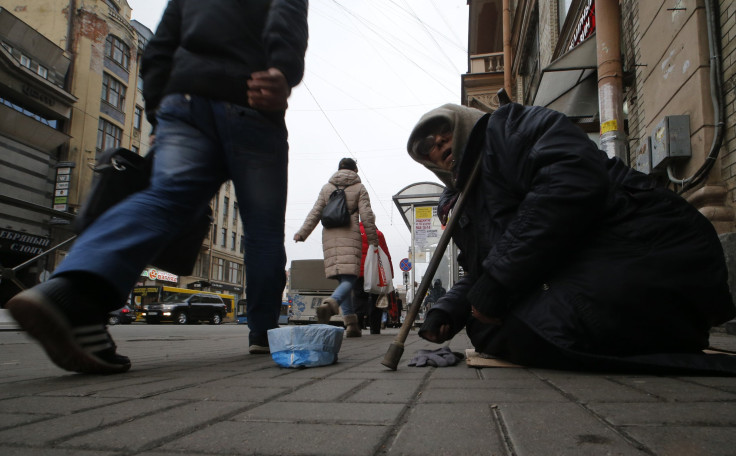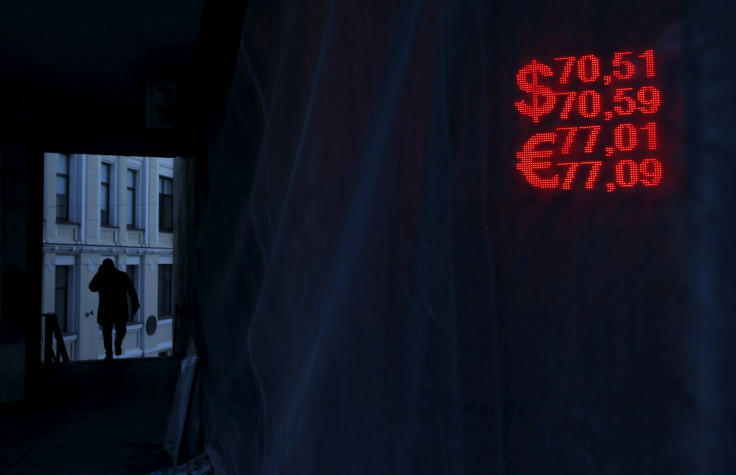Economic Woes Push More Russians Into Poverty, Highest Level In A Decade

More than 3 million Russians fell below the poverty line in 2015 — the highest level in nine years — according to official statistics released Monday. The sharp spike was driven by the country’s tanking economy, which has suffered from falling oil prices and Western sanctions.
There were 19.2 million people in poverty last year (13.4 percent of the population), up from 16.1 million in 2014, according to data released by the State Statistics Service.
Poverty numbers in Russia have now risen for their second straight year after a long, steady fall since the late 1990s. The reversal of the trend is a challenge to the narrative of rising prosperity that has been a hallmark of President Vladimir Putin’s 16-year rule and raises the specter of popular discontent.
The rise in poverty has been driven by the country’s economic woes, which saw gross domestic product (GDP) contract by 3.7 percent in 2015. The economy is expected to shrink by over 1 percent in 2016.

Russian consumers have been suffering from double-digit inflation and wild gyrations in the exchange rate: Real wages dropped 9.5 percent and unemployment rose 7.4 percent in 2015, according to official figures.
At the end of 2015, people in Russia were classified as in poverty if their monthly income was less than 9,452 rubles ($139). Many experts point out that comparative poverty levels are much higher and stress the significant levels of income inequality between large cities and more remote regions in Russia.
Between 60 percent and 70 percent of people living in poverty are families with children, Labor Minister Maxim Topilin said in an interview last month.
While there is no sign economic problems are generating widespread popular discontent in Russia, there has been a rise in labor disputes, and more protests are forecast to take place this year as unemployment grows and the government implements expected public spending cuts.

Substantial declines in quality of life in recent months have been one of the most obvious consequences of the current economic crisis for ordinary Russians — and a marked contrast to the recession of 2009 when Russia also saw a sharp contraction in its GDP.
“[In 2009] the population’s real income did not fall, and the number of poor people decreased … [But now] we have entered a different reality,” former Finance Minister and Kremlin insider Alexei Kudrin said Jan. 13.
The poverty rate in Russia dropped from 29 percent in 2000, the year Putin came to power, to a record post-Soviet low of 10.7 percent in 2012.
© Copyright IBTimes 2024. All rights reserved.






















